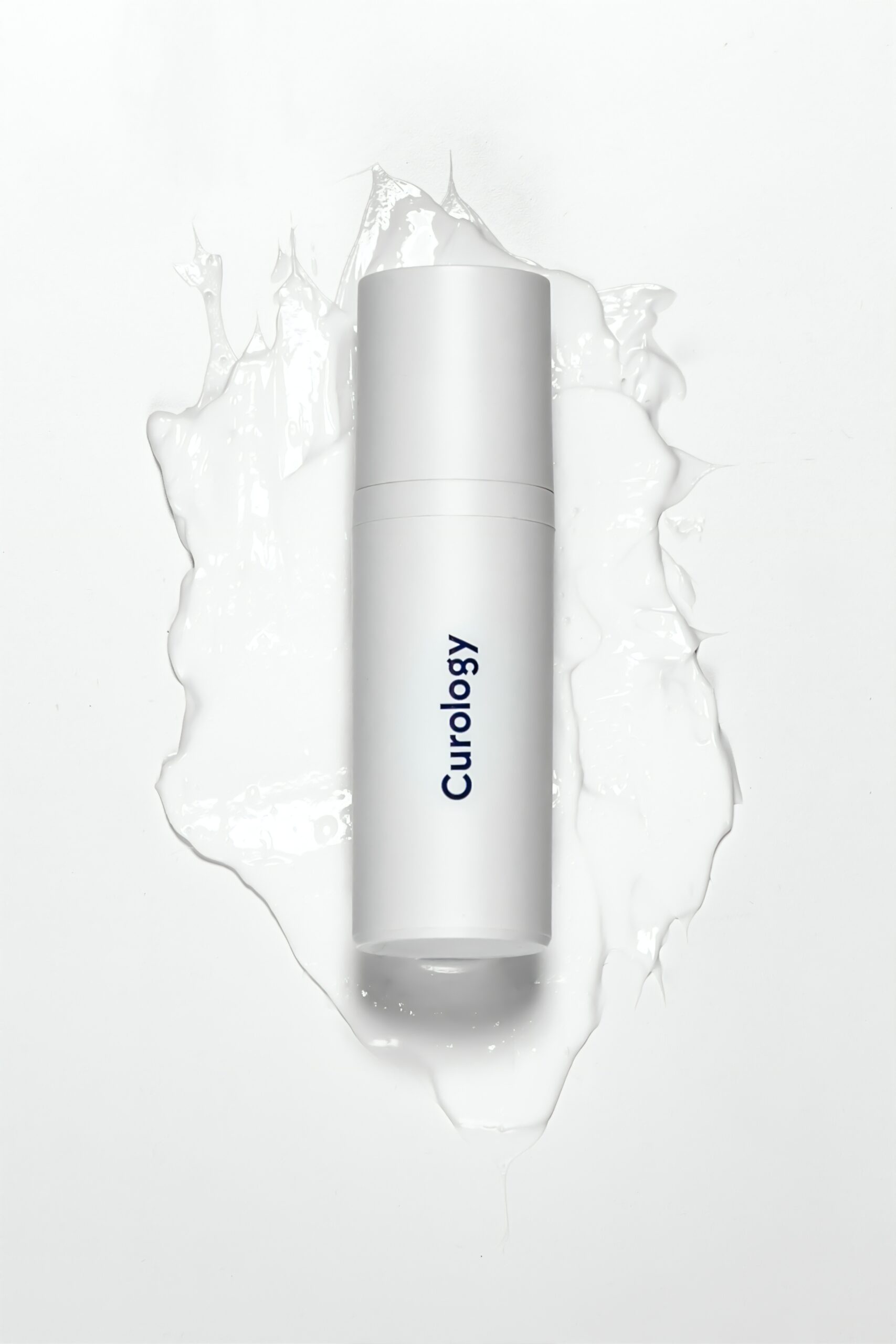Do you ever wonder how collagen supplements actually work? Collagen, a protein found in our bodies, plays a crucial role in maintaining the health and elasticity of our skin, tendons, ligaments, and muscles. As we age, our natural collagen production decreases, leading to common signs of aging such as wrinkles and joint pain. Collagen supplements are designed to replenish the lost collagen, promoting youthful-looking skin and improving joint health. In this article, we will explore the mechanisms behind collagen supplements and how they can benefit your overall well-being.

This image is property of images.unsplash.com.
Understanding Collagen
Definition of Collagen
Collagen is a type of protein that is found abundantly in our bodies, making up a significant portion of our skin, joints, bones, and other connective tissues. It serves as a vital structural element, providing strength and elasticity to these tissues. Collagen is often referred to as the “glue” that holds our bodies together, as it plays a crucial role in maintaining the integrity and function of various body parts.
Types of Collagen
There are several types of collagen present in the human body, each with its own unique structure and function. The most abundant type is Type I collagen, which is found in the skin, bones, tendons, and ligaments. Type II collagen is primarily found in cartilage, while Type III collagen contributes to the structure of blood vessels and organs. Other types, such as Type IV and Type V collagen, have specific roles in supporting the integrity of certain tissues. Understanding these different types of collagen is essential in determining the specific benefits that collagen supplements can provide.
Collagen’s Role in the Body
collagen is responsible for various functions throughout the body. In the skin, it provides elasticity and helps maintain a youthful appearance. Collagen also supports the health and mobility of our joints, promoting flexibility and reducing the risk of injury. Additionally, collagen contributes to the strength and density of our bones, ensuring their stability. Beyond these primary functions, collagen also plays a crucial role in promoting healthy hair, nails, and gut health. With all its remarkable properties, collagen is undoubtedly fundamental to our overall well-being.
The Need for Collagen Supplements
Natural Decline of Collagen
As we age, the production of collagen in our bodies naturally declines. This decline typically starts in our late twenties or early thirties, and by the age of 40, the body produces about 25% less collagen. This decline continues at a rate of about 1% per year, leading to visible signs of aging, such as fine lines, wrinkles, and sagging skin. Furthermore, the decreased collagen production can have an impact on joint mobility and bone health. To offset this decline and maintain optimal levels of collagen, many people turn to collagen supplements.
Effect of Lifestyle and Diet on Collagen Production
Apart from aging, various lifestyle and dietary factors can affect collagen production. For example, exposure to harmful UV rays from the sun, smoking, and pollution can accelerate collagen breakdown and impair its production. Similarly, a diet lacking in essential nutrients, particularly vitamin C, zinc, and copper, can hinder collagen synthesis. To support the body’s collagen production, it is crucial to adopt a healthy lifestyle and consume a balanced diet rich in collagen-promoting nutrients.
Visible Signs of Collagen Decrease
The decrease in collagen production can manifest in visible signs on our body. Sagging skin, wrinkles, and fine lines are common signs of decreased collagen levels in the skin. Joint stiffness, decreased flexibility, and increased susceptibility to injuries can indicate reduced collagen in the joints. Additionally, weak and brittle nails, thinning hair, and digestive issues like leaky gut syndrome may also suggest a collagen deficiency. Recognizing these signs can help us understand the need for collagen supplementation to address these concerns effectively.
Types of Collagen Supplements
Collagen Pills
Collagen pills, also known as collagen capsules, are one of the most popular forms of collagen supplements. These pills contain powdered collagen, usually sourced from animal or marine-based collagen, encapsulated in a gelatin or vegetable-based capsule. Collagen pills offer a convenient and straightforward way to add collagen to your daily routine, as they can be easily swallowed with water. However, it’s worth noting that the effectiveness of collagen pills may vary depending on factors such as the quality of the source material and the manufacturing process.
Collagen Powder
Collagen powder is another commonly available form of collagen supplement. It is typically tasteless and odorless, making it versatile and easy to incorporate into various food and beverage preparations. You can mix collagen powder into your morning coffee or smoothie, sprinkle it over your breakfast cereal, or even add it to your favorite recipes. Collagen powder allows for more flexibility in terms of dosing, as you can easily adjust the amount to suit your personal preferences and desired results.
Liquid Collagen
Liquid collagen supplements come in the form of a ready-to-drink liquid, usually contained in small vials or bottles. This form of collagen supplementation offers convenience, as it eliminates the need for measuring or mixing. Liquid collagen can be consumed directly or mixed with water or other beverages for enhanced taste. It is important to note that liquid collagen supplements may contain additional ingredients, such as vitamins and minerals, to enhance their effectiveness. However, it is advisable to review the product label and consult with a healthcare professional before incorporating liquid collagen into your routine.
Collagen Peptides
Collagen peptides, also known as hydrolyzed collagen, are a highly bioavailable form of collagen supplementation. These peptides undergo a process called hydrolysis, which breaks down the collagen into smaller, more easily absorbed molecules. Collagen peptides can be found in various forms, including powders, capsules, and liquids. The convenience and versatility of collagen peptides make them a popular choice among those seeking to improve their collagen levels. It is important to ensure that the collagen peptides are sourced from high-quality raw materials and manufactured using rigorous quality control processes to ensure their efficacy.
How Collagen Supplements are Made
Sourcing of Raw Material
The production of collagen supplements begins with the sourcing of raw materials. The most common sources of collagen are bovine (cow), marine (fish), and porcine (pig) collagen. The bones, skin, scales, or cartilage of these animals are typically used in the production process. It is essential for manufacturers to ensure that the raw materials used are of high quality and free from contaminants to produce safe and effective collagen supplements.
Extraction Process
After the raw materials are collected, the collagen is extracted through a process called hydrolysis. Hydrolysis involves breaking down the collagen into smaller peptides and amino acids, making it easier for the body to absorb. This extraction process may involve various techniques such as enzymatic hydrolysis, acid treatment, or a combination of both. The extraction process is crucial in determining the quality and efficacy of the collagen supplement.
Creation of Supplement Form
Once the collagen has been extracted, it is then processed into the desired supplement form, whether that be pills, powders, liquids, or peptides. Additional ingredients may be added during this stage to enhance the efficacy or improve the taste of the supplement. Manufacturers must follow strict quality control measures and adhere to regulatory guidelines to ensure the safety and effectiveness of the final product. It is always recommended to choose collagen supplements from reputable brands that prioritize quality and transparency in their manufacturing processes.

This image is property of images.unsplash.com.
How Collagen Supplements Work
Absorption in the Digestive System
When you consume collagen supplements orally, such as in the form of pills, powders, or liquids, they undergo the process of digestion in your gastrointestinal tract. The hydrolyzed collagen molecules are broken down further into smaller peptides and amino acids during this process. These smaller molecules are then absorbed through the intestinal lining into the bloodstream, allowing them to be transported to various parts of the body.
Transportation to the Skin and Joints
Once absorbed into the bloodstream, the collagen peptides and amino acids are transported to different target areas, including the skin and joints. Specialized cells in these areas, such as fibroblasts in the skin and chondrocytes in the joints, utilize these collagen building blocks to synthesize new collagen fibers. This process helps rejuvenate and replenish the collagen levels in these specific tissues, promoting skin elasticity and joint health.
Integration into the Body’s Collagen Network
As the new collagen fibers are synthesized and incorporated into the body’s existing collagen network, they contribute to the overall strength and functionality of the connective tissues. Collagen acts as a scaffold, providing structural support and aiding in cell-to-cell communication. The integration of collagen supplements into the body’s collagen network helps maintain the health and integrity of the skin, joints, bones, and other connective tissues.
Effectiveness of Collagen Supplements
Scientific Studies on Collagen Supplements
Numerous scientific studies have investigated the effectiveness of collagen supplements in addressing various health concerns. These studies have shown promising results, indicating that collagen supplementation can improve skin elasticity, reduce the appearance of wrinkles, and enhance joint mobility. However, it is important to note that the efficacy of collagen supplements can vary depending on factors such as the quality of the supplement, the dosage, and the individual’s overall health and lifestyle.
Factors Affecting Collagen Supplement Efficiency
Several factors can influence the effectiveness of collagen supplements in achieving desired results. These factors include the quality and purity of the collagen source, the dosage and duration of supplementation, and individual variations in the body’s ability to absorb and utilize collagen. Additionally, lifestyle factors such as diet, exercise, and sun protection practices can also impact the overall efficacy of collagen supplements. It is crucial to take these factors into consideration when determining the potential effectiveness of collagen supplementation.
Time Frame for Visible Results
The time frame for visible results from collagen supplementation can vary from person to person. Some individuals may start noticing improvements in their skin elasticity and joint mobility within a few weeks of consistent supplementation. However, it is important to note that collagen synthesis and tissue repair is a gradual process that may require several months of continuous supplementation to achieve optimal results. Patience and consistency are essential when incorporating collagen supplements into your routine.
This image is property of images.unsplash.com.
Benefits of Collagen Supplements
Skin Health Benefits
Collagen supplements are widely recognized for their positive impact on skin health. By improving skin elasticity and hydration, collagen supplements can help reduce the appearance of wrinkles and fine lines, promoting a more youthful complexion. Additionally, collagen supplementation has been shown to enhance skin firmness and smoothness, further contributing to a healthier and radiant appearance. Regular use of collagen supplements can support overall skin health and combat the visible signs of aging.
Joint and Bone Health Benefits
Collagen is a critical component of the cartilage and bones in our body. By providing essential building blocks for cartilage regeneration, collagen supplements can help improve joint mobility, reduce pain and stiffness, and support overall joint health. Collagen supplementation has also shown potential in promoting bone density and strength, making it beneficial for individuals at risk of osteoporosis or those looking to maintain optimal bone health.
Gut Health Benefits
Collagen supplements can have a positive impact on gut health as well. Collagen is a key component of the gut lining and helps maintain its integrity. By supporting a healthy gut lining, collagen supplements can aid in preventing conditions such as leaky gut syndrome, which is characterized by increased intestinal permeability. Additionally, collagen supplementation may help improve digestion and nutrient absorption, promoting overall gut health and well-being.
Potential Side Effects of Collagen Supplements
Known Side Effects
Overall, collagen supplements are considered safe for most individuals when consumed in the recommended dosages. However, some individuals may experience mild side effects such as digestive discomfort, bloating, or an unpleasant taste. These side effects are usually temporary and resolve on their own. It is important to start with lower dosages and gradually increase, allowing your body to adjust to the supplement. If you experience any persistent or severe side effects, it is recommended to discontinue use and consult with a healthcare professional.
Allergic Reactions
While rare, some individuals may experience allergic reactions to collagen supplements. This can manifest in symptoms such as itching, hives, swelling, or difficulty breathing. If you have a known allergy to the source material of the collagen supplement, such as fish or shellfish, it is essential to avoid collagen supplements derived from these sources. If you suspect an allergic reaction, seek immediate medical attention.
Interactions with Medications
If you are taking any medications, it is important to consult with your healthcare provider before starting collagen supplementation. Collagen supplements may potentially interact with certain medications, such as blood thinners or medications for autoimmune disorders. Your healthcare provider can advise you on any potential interactions and recommend appropriate supplementation strategies.

Considerations Before Using Collagen Supplements
Consulting a Healthcare Provider
Before incorporating collagen supplements into your routine, it is recommended to consult with a healthcare provider, particularly if you have any underlying health conditions or are currently taking medications. A healthcare provider can assess your individual needs, review any potential risks or interactions, and provide personalized recommendations based on your specific circumstances.
Deciding the Right Type and Dose
With various types of collagen supplements available, choosing the right one for your needs can be overwhelming. Understanding your specific goals and considering factors such as the collagen type, source, and potential additional ingredients can help guide your decision. Additionally, determining the appropriate dosage based on your age, weight, and desired results is crucial to optimize the benefits of collagen supplementation. It may be beneficial to seek guidance from a healthcare professional or a registered dietitian to ensure you select the most suitable type and dose of collagen supplement for your individual needs.
Checking for Quality and Certifications
To ensure the safety and efficacy of collagen supplements, it is important to select products from reputable brands that prioritize quality and transparency. Look for collagen supplements that have undergone third-party testing and carry certifications, such as Good Manufacturing Practices (GMP) or quality certifications from organizations like NSF International. These certifications indicate that the supplement has met stringent quality standards and has been thoroughly evaluated, giving you peace of mind about the product’s quality and effectiveness.
Conclusion: Should You Take Collagen Supplements?
Weighing the Pros and Cons
Collagen supplements offer a convenient way to support your body’s collagen production and address various health concerns. The benefits of collagen supplementation, including improved skin health, joint and bone support, and gut health benefits, are backed by scientific evidence. However, it is important to consider individual factors, such as existing health conditions, lifestyle choices, and personal goals, when determining whether collagen supplements are right for you. Understanding the potential side effects and considering the quality of the supplement can help you make an informed decision.
Personalized Approach to Collagen Supplementation
Since collagen supplementation is not a one-size-fits-all solution, a personalized approach is crucial. Consulting with a healthcare provider or registered dietitian can help determine your specific needs and guide you in selecting the appropriate type, dose, and duration of collagen supplementation. Additionally, considering lifestyle factors, such as maintaining a balanced diet, practicing sun protection, and adopting an active lifestyle, can further support collagen production and enhance the benefits of supplementation.
Continued Research on Collagen Supplements
As collagen supplements continue to gain popularity and interest, ongoing research is being conducted to further understand their benefits and optimize their effectiveness. By staying informed about the latest scientific findings and advancements in collagen research, you can make informed decisions about incorporating collagen supplementation into your wellness routine. It is an exciting time for collagen research, with the potential for even more benefits and applications of collagen supplements to be discovered in the future.





